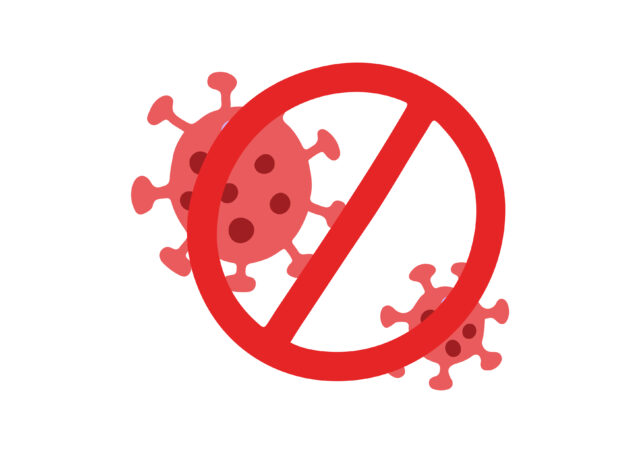Marketing strategies are your game plan for reaching prospective consumers and turning them into customers of the products or services the business provides. Many business owners haven’t discovered the importance of a marketing strategy. In fact, having a marketing strategy is so useful that you can think of it as having a road map or a cheat sheet as it will guide you in just about every business decision that you make.
In this second installment of the three-part series, we’ll be dissecting the multidimensional nature of core marketing and highlighting the A to Z’s of marketing and how applying these principles can help amplify your brand presence and perception.
JARGON
Jargon refers to that language, set of terms, acronyms, created words and more that are special and specific to a profession, niche, trade or group. Words that members of the group know and understand (or they come to know), but which are confusing to the ordinary public or non-members. These are often technical terms, industry-specific words, or words whose meaning is different for the in-group vs. others.
KEYWORD
A keyword is essentially an integral part of online marketing. Keywords are ideas and topics that define what your content is about. In terms of SEO, they’re the words and phrases that searchers enter the search engines, also called “search queries.” Keywords are important because they are the linchpin between what people are searching for and the content you are providing to fill that need. Your goal in ranking on search engines is to drive organic traffic to your site from the search engine result pages, and the keywords you choose to target (meaning, among other things, the ones you choose to include in your content) will determine what kind of traffic you get.
LANDING PAGE
What is the first thing visitors notice when they come to your website? If you’re being deliberate about how you direct people to your site, it’s going to be a landing page. The first glimpse of your landing page decides whether the viewer will stay on your website or if they will bounce. A landing page should be created intentionally to produce lead generation. Landing pages are the gatekeepers of the conversion path and are what separates a website visitor from becoming a lead. A smart inbound marketer will create landing pages that appeal to different personae at various stages of the buying process. A hefty endeavor no doubt, but one that pays off in spades.
MARKETING AUTOMATION
Marketing automation refers to software platforms and technologies designed for marketing departments and organizations to more effectively market on multiple channels online and automate repetitive tasks. Often, a brand will use multiple marketing automation tools, referred to as the marketing technology – or MARTECH.
Marketing automation tools extend the reach of marketing campaigns and go as far as finding prospects for top- to mid-funnel via personalization of pitches derived through analytics tools which segment customers into different groups for different approaches. Niche Marketing If you’re in an industry that feels over-saturated with other businesses and competitors, standing out can sometimes seem impossible. But differentiating your brand in a crowded market is achievable with niche marketing.
NICHE MARKETING
Niche Marketing is an advertising strategy that focuses on a unique target market. Instead of marketing to everyone who could benefit from a product or service, this strategy focuses exclusively on one group—a niche market—or demographic of potential customers who would most benefit from the offerings. Defining your niche is not as difficult as it sounds as it can be subject to a myriad of factors. Such as geographic area, lifestyle, profession, behaviour, demographics, need and many more. Essentially, it allows brands to differentiate themselves, appear as a unique authority, and resonate more deeply with a distinct set of customers.
OFFER
This is an asset that you’ll offer prospects on a landing page. Many businesses fail to understand the importance of “The Offer” in marketing. Studies show that consumers are more likely to purchase when there is an added benefit such as discounts, coupon codes and more. The offer is designed to help you generate leads, and they can include everything from a webinar, ebook, checklist, template, demo and more. Therefore, integrating offers in your strategy is beneficial to your overall marketing goals in the long run.
PAY-PER-CLICK (PPC)
Pay per click refers to an internet advertising model where advertisers pay a publisher (usually a search engine, social media site, or website owner) a certain amount of money every time their ad is clicked. For search engines, PPC ads display an advertisement when someone searches for a keyword that matches the advertiser’s keyword list, which they submit to the search engine ahead of time. PPC ads are used to direct traffic to the advertiser’s website. It is useful to assess the cost-effectiveness and maximize the profitability of your paid advertising campaigns.
QUANTITATIVE AND QUALITATIVE RESEARCH
Marketing is a numbers game and usually, when dealing with large numbers, representation of figures proves to be a challenge. Qualitative Research is primarily exploratory research. It is used to gain an understanding of underlying reasons, opinions, and motivations. It provides insights into the problem or helps to develop ideas or hypotheses for potential quantitative research. Qualitative Research is also used to uncover trends in thought and opinions, and dive deeper into the problem. Quantitative Research is used to quantify the problem by way of generating numerical data or data that can be transformed into usable statistics. It is used to quantify attitudes, opinions, behaviours, and other defined variables – and generalize results from a larger sample population. Quantitative Research uses measurable data to formulate facts and uncover patterns in research.
RETURN ON INVESTMENT (ROI)
Return on investments is a performance measure used to evaluate the efficiency and profitability of an investment or to compare the efficiency and profitability of multiple investments. It is not an exact science, but it is getting better. The biggest questions companies have about their marketing campaigns entail what return on investment (ROI) they’re getting for the money they spend. It is relatively easy to calculate as there are several formulas available for it. In a nutshell, ROI elucidates what strategies are working and those that aren’t.




